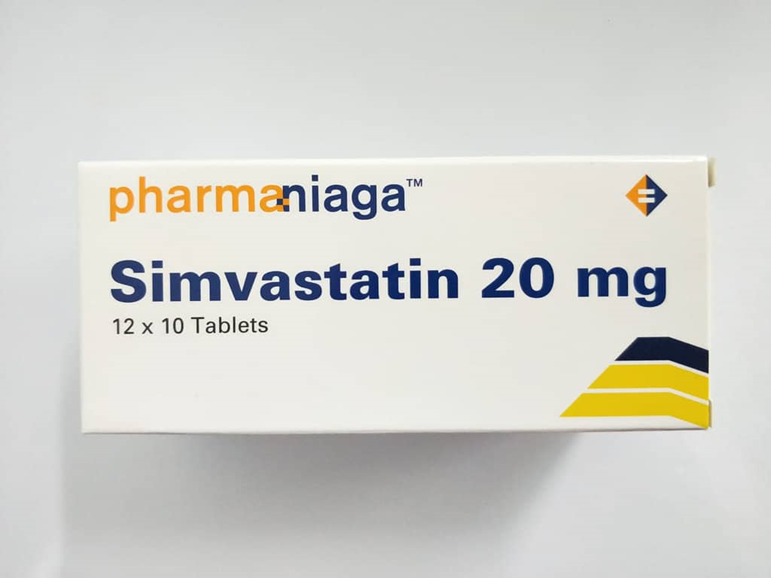A nurse is teaching a client who has a new prescription for simvastatin. Which of the following instructions should the nurse include?
You should take the medication in the morning.
You should avoid grapefruit juice.
You should monitor for ringing in the ears.
You should expect brown-colored urine.
The Correct Answer is B
Choice A reason: Taking the medication in the morning is not the correct instruction. Simvastatin is a statin drug that lowers cholesterol levels by inhibiting the enzyme that produces cholesterol in the liver. The liver produces more cholesterol at night, so simvastatin is more effective when taken in the evening or at bedtime.
Choice B reason: Avoiding grapefruit juice is the correct instruction. Grapefruit juice can increase the blood levels of simvastatin and cause serious side effects such as muscle damage, liver damage, and kidney failure. Grapefruit juice inhibits the enzyme that metabolizes simvastatin in the intestine, leading to higher concentrations of the drug in the bloodstream.

Choice C reason: Monitoring for ringing in the ears is not the correct instruction. Ringing in the ears, or tinnitus, is not a common or serious side effect of simvastatin. However, some other medications that lower cholesterol, such as niacin and gemfibrozil, can cause tinnitus. The client should report any unusual or persistent symptoms to the prescriber.
Choice D reason: Expecting brown-colored urine is not the correct instruction. Brown-colored urine, or hematuria, is not a normal or expected side effect of simvastatin. However, it may indicate a serious condition such as rhabdomyolysis, which is a rare but life-threatening complication of statin therapy. Rhabdomyolysis is the breakdown of muscle tissue that releases a protein called myoglobin into the bloodstream. Myoglobin can damage the kidneys and cause brown-colored urine. The client should seek immediate medical attention if they notice any signs of rhabdomyolysis, such as muscle pain, weakness, fever, or dark urine.
Nursing Test Bank
Naxlex Comprehensive Predictor Exams
Related Questions
Correct Answer is A
Explanation
Choice A reason: Lidocaine is an antiarrhythmic medication that stabilizes the cardiac membrane and suppresses abnormal electrical impulses in the heart. It is used to treat ventricular dysrhythmias, such as ventricular tachycardia and ventricular fibrillation, which can occur after a cardiac arrest.
Choice B reason: Lidocaine is not primarily used to relieve pain, although it has local anesthetic properties. It is not effective for chest pain caused by myocardial ischemia or infarction.
Choice C reason: Lidocaine does not dissolve blood clots, nor does it prevent their formation. It has no anticoagulant or thrombolytic effects.
Choice D reason: Lidocaine does not slow intestinal motility, nor does it affect the gastrointestinal system. It has no antispasmodic or antidiarrheal effects.
Correct Answer is D
Explanation
Choice A reason: Vomiting is not a specific sign of a hemolytic reaction, as it can be caused by many other factors, such as anesthesia, infection, or medication. Vomiting may occur in other types of transfusion reactions, such as allergic or febrile reactions, but it is not indicative of hemolysis.
Choice B reason: Flushing is not a specific sign of a hemolytic reaction, as it can be caused by many other factors, such as fever, infection, or medication. Flushing may occur in other types of transfusion reactions, such as allergic or febrile reactions, but it is not indicative of hemolysis.
Choice C reason: Dyspnea is often linked with transfusion-associated circulatory overload (TACO) or transfusion-related acute lung injury (TRALI). Both of these conditions primarily impact the respiratory system, leading to difficulty breathing. Although respiratory symptoms can accompany severe reactions, dyspnea is not a key feature of a hemolytic reaction.
Choice D reason: Hypotension is a significant indicator of an acute hemolytic reaction. When the recipient’s immune system attacks the donor red blood cells, widespread inflammatory and immune responses occur, leading to vascular collapse. This can manifest as sudden low blood pressure, which is life-threatening if not recognized and treated immediately. Alongside other findings such as fever, chills, flank pain, and hemoglobinuria, hypotension is a classic hallmark of hemolysis during transfusion.
Whether you are a student looking to ace your exams or a practicing nurse seeking to enhance your expertise , our nursing education contents will empower you with the confidence and competence to make a difference in the lives of patients and become a respected leader in the healthcare field.
Visit Naxlex, invest in your future and unlock endless possibilities with our unparalleled nursing education contents today
Report Wrong Answer on the Current Question
Do you disagree with the answer? If yes, what is your expected answer? Explain.
Kindly be descriptive with the issue you are facing.
